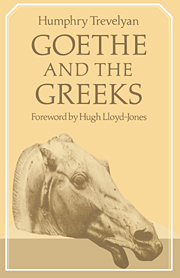CONCLUSION
Published online by Cambridge University Press: 15 December 2009
Summary
Since the Germanic lands of Europe became civilised, contrasting tendencies have revealed themselves in European culture. The art of the northern peoples has been great for its content; that of the Mediterranean lands for its form. This crude generalisation, too often lightly used, now hackneyed by the shallow minded, now discredited by the intellectual, who ask: What is content? what is form? remains yet in essence true. Its truth is obscured by closer definition, but is revealed by illustration: the North produced a Riemenschneider; the South, Michelangelo. Shakespeare repels the French by his formless power; Racine to most of us is a frigid formalist. Wagner would express the universe; in the birthpains of his mighty message, he grunts and whines and whistles; but the listener is no wiser, unless he knows by intuition or previous study what these sounds are meant to mean. Verdi clothes a trivial theme in melody; he has said nothing, but he has made something.
A German singer, trained in Italy, will often render Italian opera more perfectly than an Italian. So a northern genius, if he submits the unruly impulses of his deep-feeling soul to the discipline of southern form, may achieve something which is both of the North and of the South, which is fully European. Bach did this deliberately; the Viennese tradition, at the blending point of northern and southern Europe, enabled Mozart and Beethoven to rise above the limitations of their race, and to become complete representatives of Western man.
- Type
- Chapter
- Information
- Goethe and the Greeks , pp. 285 - 287Publisher: Cambridge University PressPrint publication year: 1981



